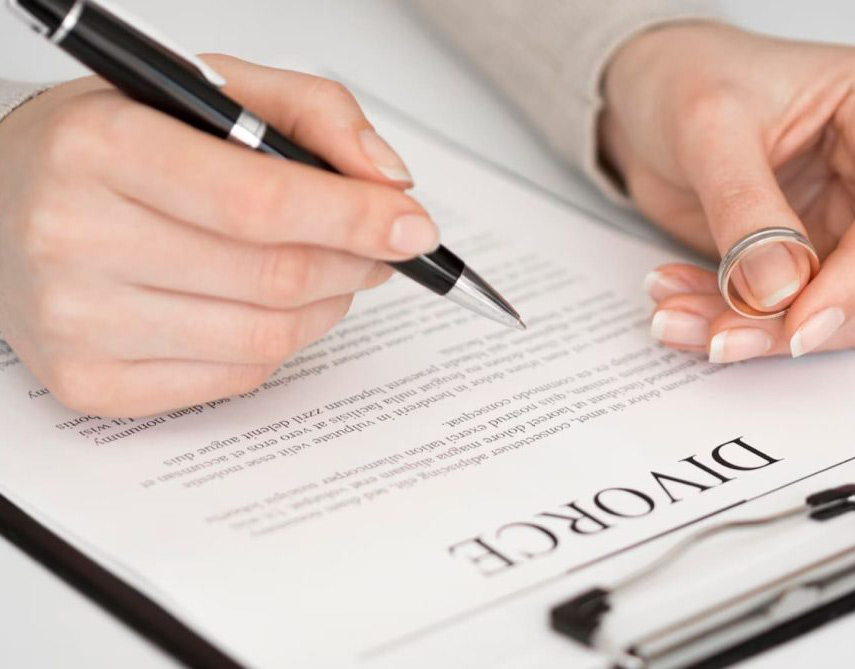Eligibility Criteria
Let’s dive into this topic from the perspective of a Canadian immigration lawyer.
Basic Requirements
In order to maintain permanent residency status in Canada, a permanent resident needs to be physically present in the country for at least 730 days within a five-year period or fall under one of several exceptions.
Special Cases
There are certain special cases when renewing a PR card:
- Working for a Canadian Company abroad- The residency obligations of a permanent resident can be fulfilled, while you are being employed on a full-time basis outside Canada by a Canadian business or in the public service of Canada.
- Accompanying a Canadian citizen spouse/ partner- In a situation, wherein a permanent resident spends each day abroad accompanying a Canadian Citizen, is considered as being physically present in Canada. However, the Canadian citizen must be a spouse or a common-law partner of the permanent resident.
Exclusions and Restrictions
To apply for a permanent resident card,
- you must already be a permanent resident of Canada
- be physically present and
- must not have been asked to leave Canada.
Application Process
- If you are a new permanent resident, you will automatically receive your permanent residency card at your mailing address provided at the time of the immigration process to enter Canada. It should not be done separately.
- In cases, where a person has failed to provide his mailing address at the time when they were granted permanent resident status, then the same can be provided to Immigration, Refugees and Citizenship Canada (IRCC) within 180 days from the date of arrival.
Required Documents
In order to get a valid PR card, you must obtain a status of Permanent Resident. Below are the mandatory documents that need to be provided to IRCC in order to assess your status as a permanent resident:
- Copy of valid passport
- Police Clearance Certificate
- Proof of work experience
- Medical Examination Confirmation
- Proof of funds.
Other documents if applicable
- Copy of Birth Certificate
- Proof of studies
- Marriage Certificate
- Evidence of Common Law Union and Cohabitation
- Divorce Certificate and the Legal Separation Agreement
- Offer letter from the employer
- Death certificate, if you have declared your marital status as “widowed”
- Proof of relationship to a Relative in Canada
- The authority to release personal information to a Designated Individual Form.
Identification papers
For the documents to be accepted, the identification needs to be issued by a federal, provincial or state government authority, be valid and not expired. The identification needs to include name, date of birth, photo and signature.
Financial Proofs
In order to apply for permanent residency status in Canada, you need to provide IRCC with proof of funds in the form of an official letter from the bank or another financial institution. The requirement of providing proof of funds is that you have enough money to provide for yourself and your family as you start your new life in Canada.
Medical Examinations
In order to obtain your status as a permanent resident, you are required to submit your Immigration medical examination confirmation along with your application.
Steps to Apply
Here are 6 easy steps to apply to become a permanent resident in Canada and get a permanent residency card.
- Get your Educational Credential Assessment (ECA) to prove that your foreign degree is at par with Canadian standards.
- Get your language expertise report with your IELTS score.
- Once you have both the abovementioned documents, create an online profile on the IRCC portal
- Thereafter, the candidate receives a score which serves as a cut-off to assess applications.
- Post this, the candidate must wait for the Express Entry Pool Draw. The candidate who receives a score above a specific rank gets an invitation to apply for permanent residency.
- Upon receiving an Invitation to Apply (ITA), you can send your final PR application along with all required documents.
Processing Time
The processing time to get a permanent residency status depends on the program under which you applied i.e. QSWP, Provincial Nominee Program and Express Entry Program. However, once you receive an invitation for permanent residency, it usually takes 4-6 months for further processing.
Required Documents
Below mentioned is the list of documents required to apply for permanent residency.
- Travel document- Passport
- International English Language Testing System (IELTS)
- Proof of funds
- Educational degrees or certificates, diploma degrees, sponsor certificates.
- Age proof- such as birth certificate
- Police Clearance Certificate
- Medical Certificate
- Education Credential Assessment
- Original copies and officially translated documents supporting the applications.
Permanent Resident Card Renewals: Info from an Immigration Law Firm
It is always recommended to carry a valid Canadian permanent residency card all the time. In order to renew a PR card, an applicant is required to submit an application to IRCC. Upon submission and meeting all the requirements of valid residency, a new permanent residency card will be issued to the applicant.
When to Renew
It is always advisable to submit your application for renewal for a new permanent residency card, if it is within 9 months of expiration, or it has already expired.
Renewal Fees
In order to renew or replace a PR card, a mandatory fee of $50 needs to be paid.
Urgent Process Conditions
For the urgent processing of the PR card, a person needs to be present in Canada and must be travelling within three months due to the following reasons:
- serious illness
- death of a family member
- serious illness of a family member
- work related to your current job
- job opportunity
Rights and Responsibilities of a Permanent Resident
In the immigration journey of becoming a permanent resident, a person becomes beneficiary of multiple rights:
- As a Canadian permanent resident, you are protected by the Canadian Charter of Rights and Freedom.
- You are eligible for public health care coverage through the public health system.
- Once they meet all the residency obligations, they can apply for Canadian citizenship as per the regulations.
- They are also entitled to most of the social benefits available to Canadian citizens.
- In addition to this, permanent residents are also allowed to reside outside Canada, but there must be a residency obligation in order to maintain their status.
Along with this, as a permanent resident, you are also shouldered with responsibilities, some of which are mentioned below.
- As a permanent resident, you need to abide by all Canadian laws at the federal, provincial and municipal levels.
- Being on Canadian soil as a permanent resident, you are obligated to pay all the taxes on time.
Social Benefits
Canadian immigration system provides a variety of social benefits to its permanent residents. Low-income groups with children under 18 years of age are eligible to get monthly tax fee payments to cover their monthly expenditures. Along with it, there are various programs such as healthcare, education, unemployment benefits, parental leave and retirement life to support the quality of life and social well-being of its residents.
Employment
It is well known fact, that Canada is the land of opportunities and as a permanent resident, you are free to work from the one day you land in arrive. Similarly, people who are eager to start their own businesses can also do so as a permanent resident. For businesses, you can obtain financial help from the government policies that are there in place.
Legal Protection
As a legal immigrant on Canadian soil, you are authorized to enter and remain in Canada as a permanent resident under the Immigration and Refugee Protection Act. Along with it, you are also authorised to work freely.
Limitations of Permanent Resident Card
To maintain Permanent Resident status, you must have been in Canada for 730 days during the last five years. The 730 days don’t need to be continuous. Some of your time abroad may count towards the 730 days.
Political Restrictions
There are certain political restrictions are being imposed on permanent residents. As a permanent resident, you are not allowed to run or vote for any kind of political office. Also, you cannot hold any jobs that need a high-level security clearance.
Jobs with High-Level Security Clearance
Some high-level jobs such as Administrative Services, Defence Services can only be given to the Citizens of the country. Hence, permanent residents are not eligible for the same.
Voluntary Renunciation
Losing your permanent resident status does not happen automatically. There may come a time when you no longer want to be a permanent resident of Canada. If so, you can apply to voluntarily give up your permanent resident status.
For example, if you:
- Know you have not met your residency obligations by being outside of Canada for a long period of time, and
- Would like to visit Canada, and
- do not want to wait for a visa officer to do a formal assessment of your permanent resident status.
OR
- would like to avoid processing delays at the Port of Entry
You may not be able to enter Canada until your permanent resident status is resolved either by receiving a permanent resident travel document or by voluntarily giving up your permanent residency status.
Removal Orders
There are three kinds of removal orders that are generally issued by the Canada Border Service Agency (CBSA).
- Departure order – Under the Departure order, the recipient is required to leave the country voluntarily within 30 days. If the recipient fails to leave within the duration of 30 days, then the departure order gets converted into a Deportation Order.
- Exclusion Orders – This type of removal order bans the recipient from entering the country for a period of two years.
- Deportation Orders – Under this kind of removal order, the recipient is arrested, removed from the country, and banned from re-entering Canada.
However, the removal orders against a permanent resident can be appealed under certain circumstances, resulting in a stay of removal order. The stay of a removal order is generally granted by imposing the conditions such as good behaviour, reporting to CBSA, and efforts to acquire full-time employment.
Travelling as a Permanent Resident
Your permanent residency card can be used to show you have a permanent resident status in Canada. When you are going to travel outside of Canada, you should make sure you have a valid permanent residence card before you leave Canada.
Documents Needed for Re-Entry
In order to re-enter Canada, you need a valid permanent residence card to return by plane, train, bus or boat. If you know your card will expire when you are travelling, renew it before you leave. You can only renew your card in Canada.
If you are outside Canada and don’t have a valid permanent residence card, you need a Permanent Resident Travel Document (PRTD) to return to Canada. If you try to return to Canada without a PR card and PRTD, you may not be able to take your flight, train, bus or boat to Canada.
How to Transition to from Permanent Residency to Canadian Citizenship
In order to transition from a permanent residency to citizenship, following conditions must be satisfied:
- you must have permanent resident status in Canada
This means you must not:
- Be under review for immigration or fraud reason
- Be asked by Canadian Officials to leave Canada (removal order)
- Have unfulfilled conditions related to your PR status, for example: medical screening.
- You must have been physically in Canada for at least 1,095 days (3 years) during the 5 years before you signed your application.
Eligibility Criteria
To become a Canadian citizen, you must
- Be a permanent resident
- Have lived in Canada for 3 out of 5 years.
- Have filed taxes, if you need to
- Prove your language skills
- Pass a citizenship test
- Take the oath of citizenship
Application Process
For obtaining Canadian citizenship, an application can be filed online as well as offline.
It can be applied online if
- As an adult 18 years of age or older, you are a permanent resident who wishes to apply to become a citizen.
- As a minor, who is a permanent resident under 18 years of age and has one parent who is a Canadian citizen or one parent who is applying for Canadian citizenship at the same time.
- As a minor, the minor is a permanent resident under 18 years of age who does not have one parent who is a Canadian citizen or one parent who is applying for Canadian citizenship at the same time.
At this time, you can only apply on paper if
- In your physical presence calculation, you include time spent outside Canada as
- Crown servant, or
- A family member of a crown servant.
- You are a representative applying on behalf of a client.
The processing of the applications for the grant of Canadian citizenship can take an average of 24 months from the day of the receipt of the application to the date the decision is made.
Benefits of Becoming a Canadian Citizen
A person can obtain various benefits once you trade in your permanent residency after becoming eligible for citizenship.
- All Canadian citizens over the age of 18 can cast a ballot or vote in every federal, provincial and municipal election.
- Once you become a Canadian Citizen, you can run for municipal, provincial or federal elections.
- As Canadian citizens, people become eligible to travel visa-free to a number of countries around the world.
Frequently Asked Questions: Canadian Immigration Lawyer Answers
What documents are required for re-entry?
In order to re-enter Canada, you need a valid permanent residence card to return by plane, train, bus or boat. If you know your card will expire when you are travelling, renew it before you leave. You can only renew your card in Canada.
Can you voluntarily give up your Permanent Residency?
Yes, according to the Canadian government, it is possible.
Can I work while my Permanent Residency card is being renewed?
As a permanent resident, you are eligible to work even when you are PR card is under the renewal process.
What do I do if my PR card is lost or stolen?
According to the Canadian government, you have two options:
- You are within Canada– You can replace it by applying the new one. For the processing of a new PR card, a permanent resident needs to submit several supporting documents along with an application fee of $50. Following supporting documents must be included:
- Your PR card
- Primary identity document (such as a valid passport or travel document)
- Secondary identity document
- Documents demonstrating proof of residence in Canada in the past 5 years.
- Photographs.
- You are outside Canada – In a situation, where you lose your PR card, being outside Canada, you need to apply for Permanent Resident Travel Document (PRTD) to return to Canada. After your return to Canada, you are expected to apply for the renewal of your PR card.
Immigration Canada: Conclusion
When it comes to choosing to best country to migrate to, Canada ticks all the boxes. Post Covid, Canada has targeted to welcome migrants all over the world. If you have Canadian dreams, connect with a Canadian immigration lawyer from our legal team for queries related to Canadian immigration.


 FAMILY LAWYER SERVING ALL OVER GTA
FAMILY LAWYER SERVING ALL OVER GTA



